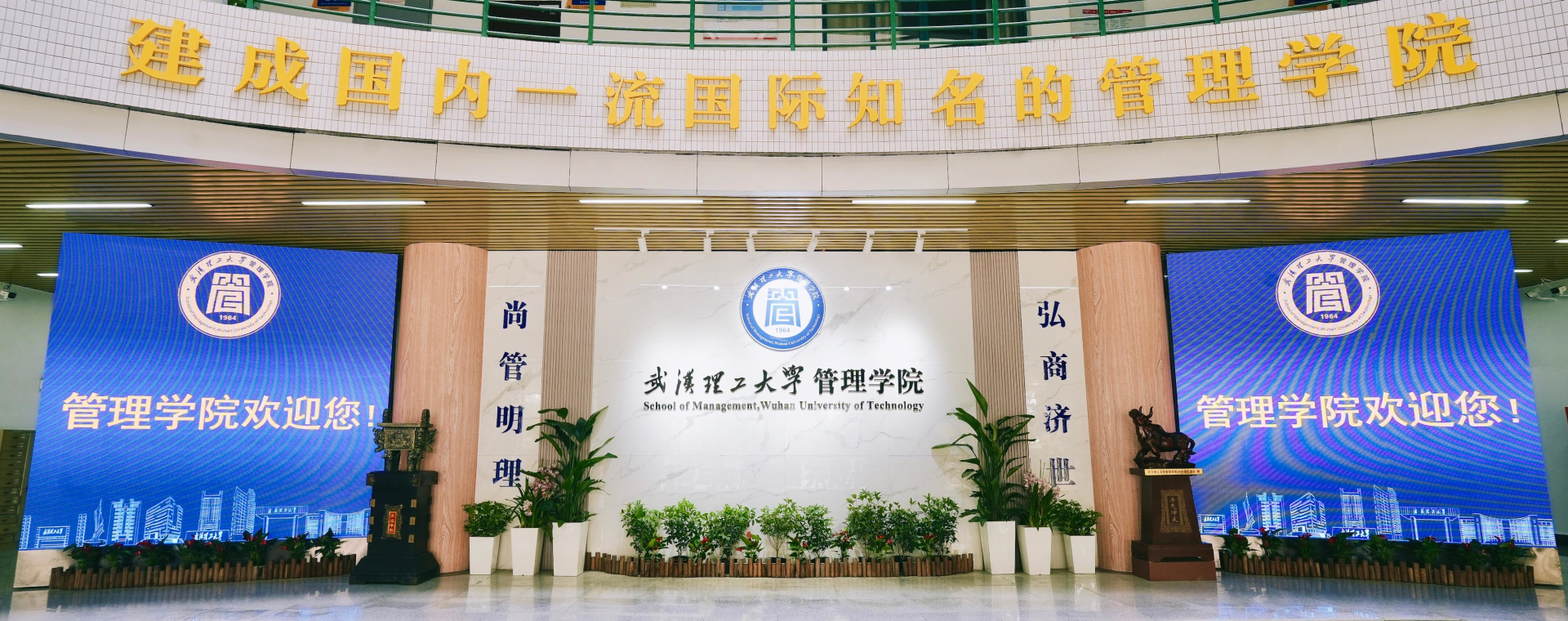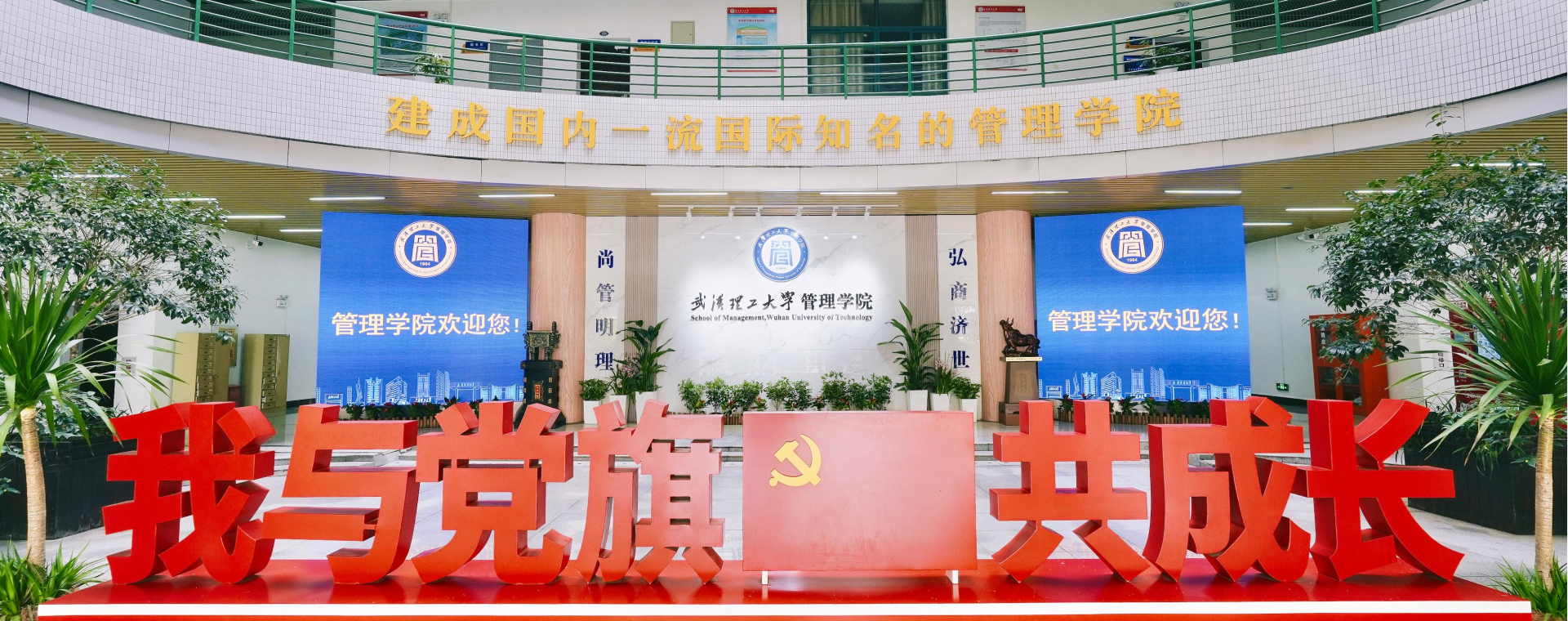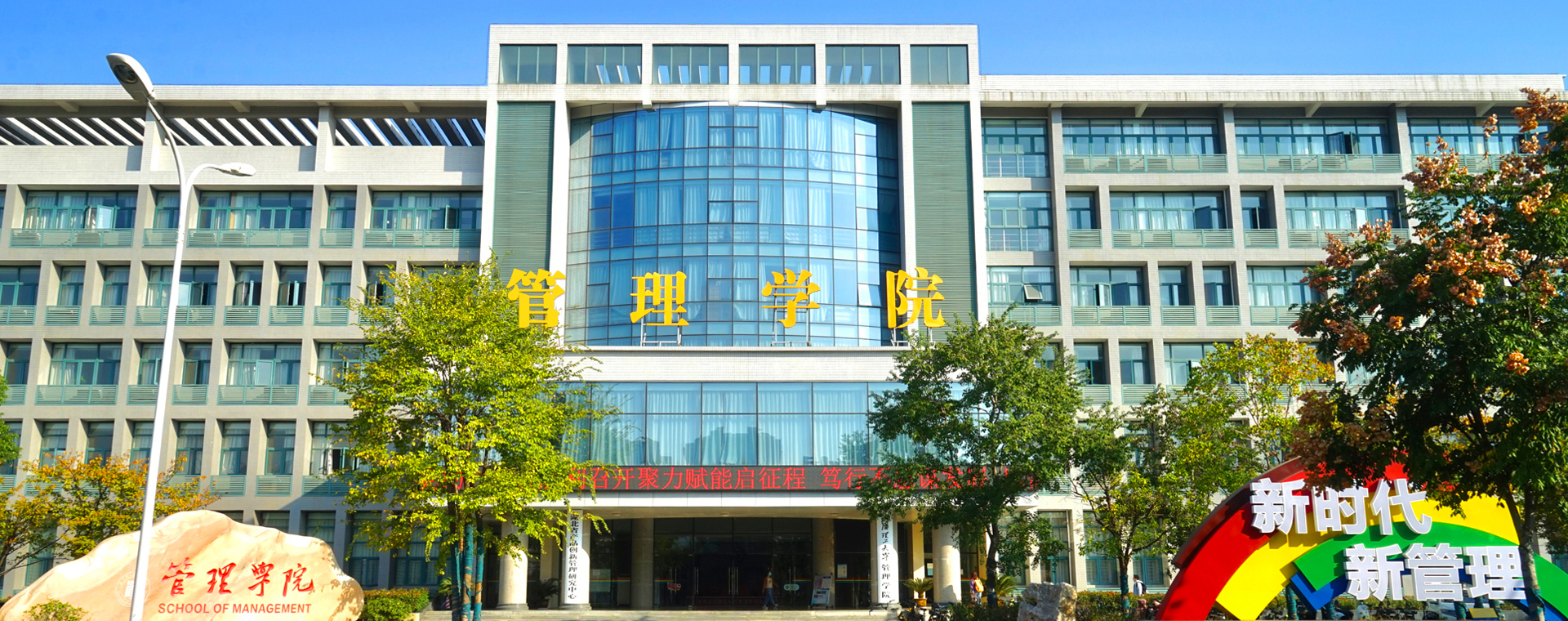


发布时间:2021-01-26

姓 名:全 吉
职 称:教授、博导
微 信:whu_quanji
邮 箱:quanji123@163.com
研究方向:博弈论与合作机制,供应链管理,工程项目管理
个人简介
全吉,男,1983年8月生,湖北襄阳人。2005年6月本科毕业于武汉大学,主修信息管理与信息系统专业,辅修数学与应用数学专业,获管理学和理学双学士学位;2012年6月博士毕业于武汉大学系统工程专业,获工学博士学位;2012年7月至2015年3月在中国能源建设集团广东省电力设计研究院从事工程管理和技术经济咨询工作(2012年9月至2014年11月与天津大学管理与经济学部工程管理系联合培养从事博士后研究)。2015年4月起任职于437ccm·必赢国际副教授,同年任硕士生导师;2018年11月起任亚洲必赢国际437管理科学与工程专业博士生导师。2019年8月至2020年8月获国家留学基金委全额资助在英国曼彻斯特大学商学院访学。2020年10月起任437ccm·必赢国际教授,管理科学与工程、工商管理等专业博士生导师。
主要学术任职:
[1] 国家自然科学基金委通讯评审专家
[2] 国家社会科学基金通讯评审专家
[3] 国家留学基金委通讯评审专家
[4] 国家教育部学位中心评审专家
[5] 湖北省科技厅项目评审专家
[6] 中国运筹学会博弈论专委会理事
[7] 湖北省系统工程学会常务理事
[8] 国内外二十多个期刊的评审专家
主讲课程 (本科和研究生各不超过3门):
[1] 本科生课程:运筹学
[2] 研究生课程:决策理论与方法、博弈论、数据模型与决策
主持科研项目 (填写2011年以来作为课题负责人主持的项目,按时间倒序填写,纵向在前,横向在后):
[1] 国家自科基金面上项目,关联社会困境博弈中的策略演化与群体合作涌现(No.72371193),2024年1月-2027年12月. 项目负责人
[2] 国家社科基金重大项目,合作行为的演化博弈研究(No.20&ZD058),2021年1月-2025年12月. 子课题负责人
[3] 国家自科基金重点项目,学习机制下群体博弈行为演化与管理实验(No.72031009),2021年1月-2025年12月. 子课题负责人
[4] 国家自科基金面上项目,具有奖惩策略及声誉评价的社会困境博弈在随机演化下的合作涌现(No.71871173),2019年1月-2022年12月. 项目负责人
[5] 国家自科基金青年项目,复杂工程中不完全信息多议题争端谈判的博弈模型与合作机制研究(No.71501149),2016年1月-2018年12月. 项目负责人
[6] 国家自科基金重点项目,复杂不确定性多主体多目标合作博弈与协商谈判的合作机制与合作模式(No. 71231007),2013年1月-2017年12月. 子课题负责人
[7] 湖北省软科学面上项目,产业技术创新联盟合作的激励机制及政府行为(No.2017ADC122),2017年11月-2018年10月. 项目负责人
[8] 中国博士后科学基金项目:复杂经济管理系统多主体合作机理与机制设计(No.2013M541178),2013年9月-2014年11月. 项目负责人
[9] 中央高校基本科研业务费重点项目:基于社会规范的声誉评价与群体合作行为(No.2019VI029),2019年1月-2020年12月. 项目负责人
[10] 中央高校基本科研业务费重点项目:考虑消费者策略行为下的供应链协调与合作契约研究(No.2017VI070),2017年1月-2018年12月. 项目负责人
[11] 中央高校基本科研业务费一般项目:供应链系统多主体合作机制及其实现方法研究(No.2015VI012),2015年5月-2016年12月. 项目负责人
[12] 中国能源建设集团广东院委托项目:电力市场运营风险评估与管理策略, 2022年6月-2022年12月. 项目负责人
[13] 中国能源建设集团广东院科技项目:国际总承包工程风险评估与管理研究, 2012年9月-2014年12月. 项目负责人
学术论文:
在国内外重要期刊发表学术论文80余篇,其中SCI/SSCI收录60篇。2011年以后的部分论文如下(上标*表示第一通讯作者):
[1] Quan J*, Cui S, Wang X. Cooperation dynamics in multi-issue repeated social dilemma games with correlated strategy[J]. Physical Review E, 2024, 110(2): 024307. (SCI)
[2] Quan J, Zhang Y, Chen W*, Wang X. Cooperation dynamics of prisoner's dilemma games on an evolutionary weighted network with heterogeneous preferences[J]. Chaos: An Interdisciplinary Journal of Nonlinear Science, 2024, 34(8): 083136. (SCI)
[3] Quan J*, Chen X, Wang X. Repeated prisoner's dilemma games in multi-player structured populations with crosstalk[J]. Applied Mathematics and Computation, 2024, 473: 128650. (SCI)
[4] Chen W, Quan J*, Wang X. The emergence and maintenance of cooperation in the public goods game under stochastic strategy updating rule with preference[J]. Dynamic Games and Applications, 2024, 14: 1225–1237. (SCI)
[5] Quan J*, Ma X, Cui S, Wang X. Cooperation dynamics in multiple correlated games: A review[J]. Europhysics letters, 2024, 145(1): 12001. (SCI)
[6] Quan J*, Li H, Zhang M, Wang X. Cooperation dynamics in nonlinear spatial public goods games with endogenous synergy and discounting feedback[J]. Chaos, Solitons & Fractals, 2024, 178: 114359. (SCI)
[7] Ma X, Quan J*, Wang X. Effect of reciprocity mechanisms on evolutionary dynamics in feedback-evolving games[J]. Nonlinear dynamics, 2024, 112(1): 709-729. (SCI)
[8] Quan J, Zhang X, Chen W*, Tang C, Wang X. Reputation-dependent social learning on the evolution of cooperation in spatial public goods games[J]. Applied Mathematics and Computation, 2024, 475: 128745. (SCI)
[9] Quan J, Zhang X, Chen W*, Wang X. Cooperation dynamics in collective risk games with endogenous endowments[J]. Chaos: An Interdisciplinary Journal of Nonlinear Science, 2023, 33(7): 073107. (SCI)
[10] Quan J*, Yu J, Li X, Wang X. Conditional switching between social excluders and loners promotes cooperation in spatial public goods game[J]. Chaos, Solitons & Fractals, 2023, 169: 113319. (SCI)
[11] Quan J*, Shi Y, Wang X. Effect of fairness-based sympathy and retaliation on cooperation in multi-player dilemma games[J]. Applied Mathematics and Computation, 2023, 449: 127978. (SCI)
[12] Quan J*, Li H, Wang X. Cooperation dynamics in public goods games with evolving cognitive bias[J]. Management System Engineering, 2023, 2(1): 15.
[13] Quan J, Cui S, Chen W*, Wang X. Reputation-based probabilistic punishment on the evolution of cooperation in the spatial public goods game[J]. Applied Mathematics and Computation, 2023, 441: 127703. (SCI)
[14] Quan J*, Chen X, Yang W, Wang X. Cooperation dynamics in spatial public goods games with graded punishment mechanism[J]. Nonlinear dynamics, 2023, 111: 8837–8851. (SCI)
[15] Ma X, Quan J*, Wang X. Evolution of cooperation with nonlinear environment feedback in repeated public goods game[J]. Applied Mathematics and Computation, 2023, 452: 128056. (SCI)
[16] Chen W, Quan J, Wang X, Liu Y. Evolutionary dynamics from fluctuating environments with deterministic and stochastic noises[J]. Nonlinear dynamics, 2023, 111: 5499–5511. (SCI)
[17] Quan J*, Dong X, Wang X. Rational conformity behavior in social learning promotes cooperation in spatial public goods game[J]. Applied Mathematics and Computation, 2022, 425: 127097. (SCI、SSCI)
[18] Quan J, Nie J, Chen W*, Wang X. Keeping or reversing social norms promote cooperation by enhancing indirect reciprocity[J]. Chaos, Solitons & Fractals, 2022, 158: 111986. (SCI)
[19] Quan J*, Wang X, Wang X, Xia D, Yang J-B. Performance optimization of supply chain based on cooperative contract with disappointment-aversion strategic consumers[J]. Flexible Services and Manufacturing Journal, 2022, 34: 408–428. (SCI、SSCI)
[20] Quan J*, Guo H, Wang X. Impact of reputation-based switching strategy between punishment and social exclusion on the evolution of cooperation in the spatial public goods game[J]. Journal of Statistical Mechanics: Theory and Experiment, 2022, 2022(7): 073402. (SCI)
[21] Chen W, Wang X, Quan J. Evolutionary dynamics of cooperation in multi-game populations[J]. Physics Letters A, 2022, 426: 127882. (SCI)
[22] Quan J*, Zhou Y, Ma X, Wang X, Yang J-B. Integrating emotion-imitating into strategy learning improves cooperation in social dilemmas with extortion[J]. Knowledge-Based Systems, 2021, 233: 107550. (SCI、SSCI)
[23] Quan J*, Shi Y, Wang X, Yang J-B. Reputation-based conditional compassion promotes cooperation in spatial public goods games[J]. Journal of Statistical Mechanics - Theory and Experiment, 2021: 113405. (SCI、SSCI)
[24] Ma X, Quan J*, Wang X. Effect of reputation-based heterogeneous investment on cooperation in spatial public goods game[J]. Chaos, Solitons & Fractals, 2021, 152: 111353. (SCI)
[25] Quan J*, Tang C, Wang X. Reputation-based discount effect in imitation on the evolution of cooperation in spatial public goods games[J]. Physica A: Statistical Mechanics and its Applications, 2021, 563: 125488. (SCI)
[26] Quan J*, Pu Z, Wang X. Comparison of social exclusion and punishment in promoting cooperation: Who should play the leading role?[J]. Chaos, Solitons & Fractals, 2021, 151: 111229. (SCI)
[27] Quan J*, Zhang M, Wang X. Effects of synergy and discounting on cooperation in spatial public goods games[J]. Physics Letters A, 2021: 127055. (SCI)
[28] Quan J*, Yang W, Li X, Wang X, Yang J-B. Social exclusion with dynamic cost on the evolution of cooperation in spatial public goods games[J]. Applied Mathematics and Computation, 2020, 372: 124994. (SCI、SSCI)
[29] Quan J*, Zhou Y, Wang X, Yang J-B. Evidential reasoning based on imitation and aspiration information in strategy learning promotes cooperation in optional spatial public goods game[J]. Chaos, Solitons & Fractals, 2020: 109634. (SCI、SSCI)
[30] Quan J*, Qin Y, Zhou Y, Wang X, Yang J-B. How to evaluate one's behavior toward "bad" individuals? Exploring good social norms in promoting cooperation in spatial public goods games[J]. Journal of Statistical Mechanics - Theory and Experiment, 2020: 093405. (SCI、SSCI)
[31] Quan J*, Zhou Y, Wang X, Yang J-B. Information fusion based on reputation and payoff promotes cooperation in spatial public goods game[J]. Applied Mathematics and Computation, 2020, 368: 124805. (SCI)
[32] Quan J*, Tang C, Zhou Y, Wang X, Yang J-B. Reputation evaluation with tolerance and reputation-dependent imitation on cooperation in spatial public goods game[J]. Chaos, Solitons & Fractals, 2020, 131: 109517. (SCI)
[33] Quan J*, Li X, Wang X. The evolution of cooperation in spatial public goods game with conditional peer exclusion[J]. Chaos, 2019, 29(10): 103137. (SCI、SSCI)
[34] Quan J*, Zhang M, Zhou Y, Wang X, Yang J-B. Dynamic scale return coefficient with environmental feedback promotes cooperation in spatial public goods game[J]. Journal of Statistical Mechanics - Theory and Experiment, 2019: 103405. (SCI)
[35] Quan J*, Yang X, Wang X, Yang J-B, Wu K, Dai Z. Withhold-judgment and punishment promote cooperation in indirect reciprocity under incomplete information[J]. Epl, 2019, 128(2): 28001.(SCI)
[36] Quan J*, Wang X, Quan Y*. Effects of Consumers’ Strategic Behavior and Psychological Satisfaction on the Retailer’s Pricing and Inventory Decisions[J]. IEEE Access, 2019, 7: 178779-178787. (SCI、SSCI)
[37] Quan J*, Zhou Y, Zhang M, Tang C, Wang X. The Impact of Heterogeneous Scale Return Coefficient between Groups on the Emergence of Cooperation in Spatial Public Goods Game[J]. Journal of Statistical Mechanics - Theory and Experiment, 2019: 043402. (SCI、SSCI)
[38] Quan J*, Zheng J, Wang X, Yang X. The effect of increasing returns to scale in public goods investment on threshold values of cooperation under social exclusion mechanism[J]. Physica a-Statistical Mechanics and Its Applications, 2019, 532: 121866. (SCI、SSCI)
[39] Quan J, Zheng J*, Wang X, Yang X. Benefits of asynchronous exclusion for the evolution of cooperation in stochastic evolutionary optional public goods games[J]. Scientific reports, 2019, 9: 8208. (SCI、SSCI)
[40] Quan J*, Wang X, Li C, Xia D. Quantity commitment strategy and effectiveness analysis with disappointment aversion strategic consumers[J]. IEEE Access, 2019, 7: 67094-67106. (SCI、SSCI)
[41] Wang X, Gu C, Zhao J, Quan J. Evolutionary game dynamics of combining the imitation and aspiration-driven update rules[J]. Physical Review E, 2019, 100(2): 022411. (SCI)
[42] Wang X, Gu C, Quan J. Evolutionary game dynamics of the Wright-Fisher process with different selection intensities[J]. Journal of Theoretical Biology, 2019, 465: 17-26. (SCI)
[43] Wang X, Gu C, Lv S, Quan J. Evolutionary game dynamics of combining the Moran and imitation processes[J]. Chinese Physics B, 2019, 28(2): 020203. (SCI)
[44] Quan J*, Yang X, Wang X. Continuous spatial public goods game with self and peer punishment based on Particle Swarm Optimization[J]. Physics Letters A, 2018, 382(26): 1721-1730. (SCI、SSCI)
[45] Quan J*, Yang X, Wang X. Spatial Public goods game with continuous contributions based on Particle Swarm Optimization learning and the evolution of cooperation[J]. Physica a-Statistical Mechanics and Its Applications, 2018, 505: 973-983. (SCI)
[46] Quan J*, Liu W, Chu Y, Wang X. Stochastic dynamics and stable equilibrium of evolutionary optional public goods game in finite populations[J]. Physica a-Statistical Mechanics and Its Applications, 2018, 502: 123-134. (SCI、SSCI)
[47] Quan J*, Chu Y, Liu W, Wang X, Yang X. Stochastic evolutionary public goods game with first and second order costly punishments in finite populations[J]. Chinese Physics B, 2018, 27(6): 060203. (SCI、SSCI)
[48] Quan J*, Liu W, Chu Y, Wang X. Stochastic evolutionary voluntary public goods game with punishment in a Quasi-birth-and-death process[J]. Scientific reports, 2017, 7: 16110. (SCI、SSCI)
[49] Wang X, Lv S, Quan J. The evolution of cooperation in the Prisoner’s Dilemma and the Snowdrift game based on Particle Swarm Optimization[J]. Physica a-Statistical Mechanics and Its Applications, 2017, 482: 286-295. (SCI)
[50] Quan J*, Yang S, Wang X J. Learning algorithm and the cooperation behavior of continuous prisoner’s dilemma game on complex networks[J]. Journal of Information and Computational Science, 2013, 10(10): 3031-3041. (EI)
[51] Quan J*, Wang X J. Effects of Interaction Rate and Noise Intensity on the Equilibrium Selection of a Class of Stochastic Evolutionary Games[J]. Advances in Information Sciences and Service Sciences, 2013, 5(9): 224 - 233. (EI)
[52] Quan J*, Wang X J. Some analytic properties of the model for stochastic evolutionary games in finite populations with non-uniform interaction rate[J]. Communications in Theoretical Physics, 2013, 60(1): 37-47. (SCI)
[53] Wang X J, Quan J*, Liu W B. Evolution of Cooperation in Continuous Prisoner's Dilemma Games on Barabasi-Albert Networks with Degree-Dependent Guilt Mechanism[J]. Communications in Theoretical Physics, 2012, 57(4): 897-903. (SCI)
[54] Quan J*, Wang X J. Evolutionary games in a generalized Moran process with arbitrary selection strength and mutation[J]. Chinese Physics B, 2011, 20(3): 030203. (SCI)
[55] Quan J*, Wang X J. Evolutionary game dynamics in a fitness-dependent Wright-Fisher process with noise[J]. Communications in Theoretical Physics, 2011, 56(3): 404-410. (SCI、SSCI)
[56] 全吉, 储育青, 王先甲. 自愿参与机制下的公共物品博弈与合作演化[J]. 系统工程学报, 2020, 35(2): 188-200.
[57] 全吉, 储育青, 王先甲. 具有惩罚策略的公共物品博弈与合作演化[J]. 系统工程理论与实践, 2019, 39(1): 141-149.
[58] 全吉, 周亚文, 王先甲. 社会困境博弈中群体合作行为演化研究综述[J]. 复杂系统与复杂性科学, 2020, 17(1): 1-14.
[59] 王先甲, 顾翠伶, 赵金华, 全吉. 具有模糊支付的Moran过程演化博弈动态[J]. 运筹与管理, 2021, 30(07): 71-76.
[60] 王先甲, 顾翠伶, 赵金华, 全吉. 随机演化动态及其合作机制研究综述[J]. 系统科学与数学, 2019, 39(10): 1533-1552.
[61] 王先甲, 吕少杰, 全吉. 产品售后服务捆绑销售与营销策略演化[J]. 系统工程理论与实践, 2018, 38(7): 1740-1749.
[62] 王晓凤, 全吉. 风险厌恶型消费者策略性行为对零售商决策的影响[J]. 亚洲必赢国际437学报(信息与管理工程版), 2018, 40(2): 175-180.
[63] 王先甲, 何奇龙, 全吉, 顾翠伶. 基于Moran过程的消费者众筹策略演化动态[J]. 运筹与管理, 2017, (11): 105-110.
[64] 王先甲, 何奇龙, 全吉. 基于复制动态的消费者众筹策略演化动态[J]. 系统工程理论与实践, 2017, (11): 2812-2820.
[65] 王先甲, 何奇龙, 全吉. 阈值风险下的多企业合作治理污染的演化博弈分析[J]. 运筹与管理, 2017, (12): 17-22+45.
[66] 全吉, 黄剑眉, 张水波, 曾祥育. 基于风险链和模糊影响图的风险定性评估方法——以某海外EPC电力工程为例[J]. 南方能源建设, 2016, (01): 63-69.
[67] 朱明, 全吉, 黄剑眉, 张水波. 国际工程项目费用风险量化评估与动态管控[J]. 国际经济合作, 2014, (05): 81-86.
[68] 王先甲, 全吉, 刘伟兵. 有限理性下的演化博弈与合作机制研究[J]. 系统工程理论与实践, 2011, 31(Sup.1): 82-93.
[69] 全吉, 黄剑眉, 张水波. 国际总承包工程风险数据库和评估管理系统分析与设计[J]. 南方能源建设, 2015, (04): 163-169+101.
[70] 王先甲, 何奇龙, 全吉. 互联网众筹平台监管策略的演化博弈分析[J]. 当代财经, 2017, (04): 57-66.
[71] 全吉, 黄剑眉, 张水波, 曾祥育. 基于风险链和风险地图的风险识别和分析方法——以某海外EPC电力工程为例[J]. 南方能源建设, 2014, (01): 92-96.
其他说明(科研合作和招收研究生意向说明):
具有博士招生资格。研究方向偏重数学模型和计算仿真。欢迎数学、计算机、经济管理等相关专业,或者数学和编程基础(C++, MATLAB)好的同学报考全日制硕博士研究生。对于非全日制研究生的专业要求不限,但需具备一定的企业管理或工程项目管理经验。

亚洲必赢国际437微信公众号

437ccm·必赢国际微信公众号

地址:武汉市洪山区珞狮路122号 437ccm·必赢国际 邮编:430070 Copyright © 437ccm·必赢国际 All Rights Reserved